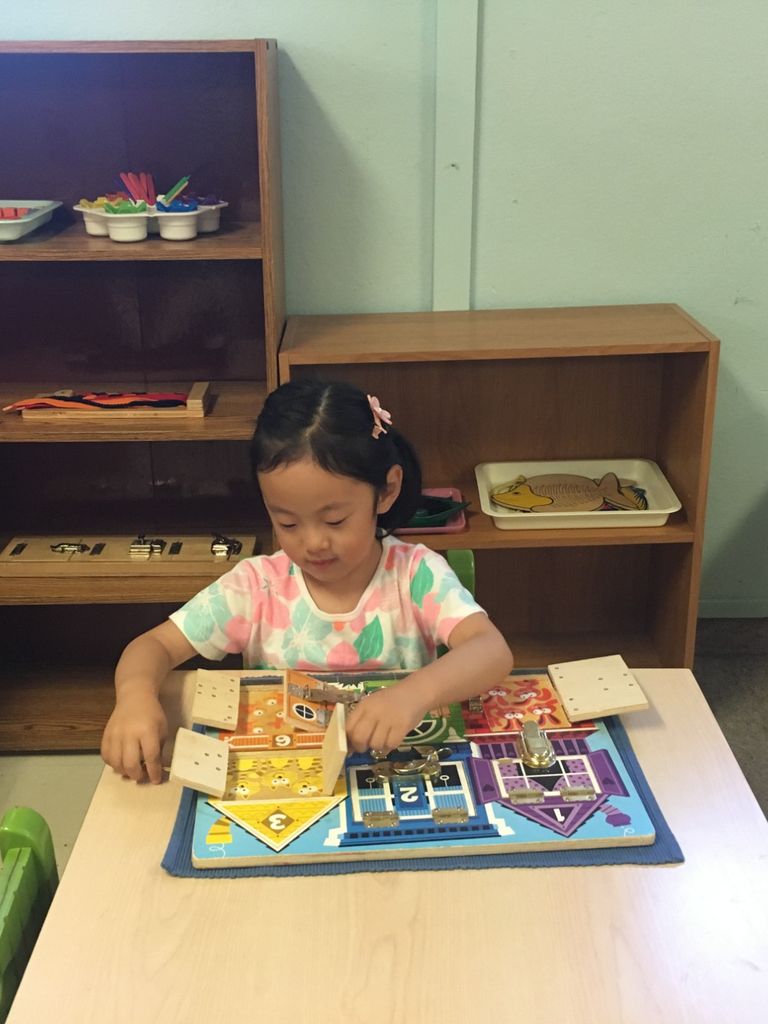
Practical Life
Children have a natural urge to partake in the activities of daily living and be a participating member of family life.
Simple chores adults may take for granted fascinate the child, engaging them in the meaningful learning of life skills.
Practical life activities help children develop and coordinate movement, awareness of the environment, order thought patterns, independent work habits, and responsibility.
The lessons in Practical Life include:
Preliminary Exercises- preparing the fine motor skills for more challenging activities (spooning, pouring, stringing, etc.)
Care of the Environment- learning to respect and care for the tools in the space where the child lives and learns (food preparation, sweeping, dusting, washing, polishing, etc.)
Care of the Person- learning the basics of self-care skills (hand washing, nose blowing, dressing, nutrition, etc.)
Grace and Courtesy- learning social skills (walking carefully, communication, manners, table setting, hosting a guest, etc.)
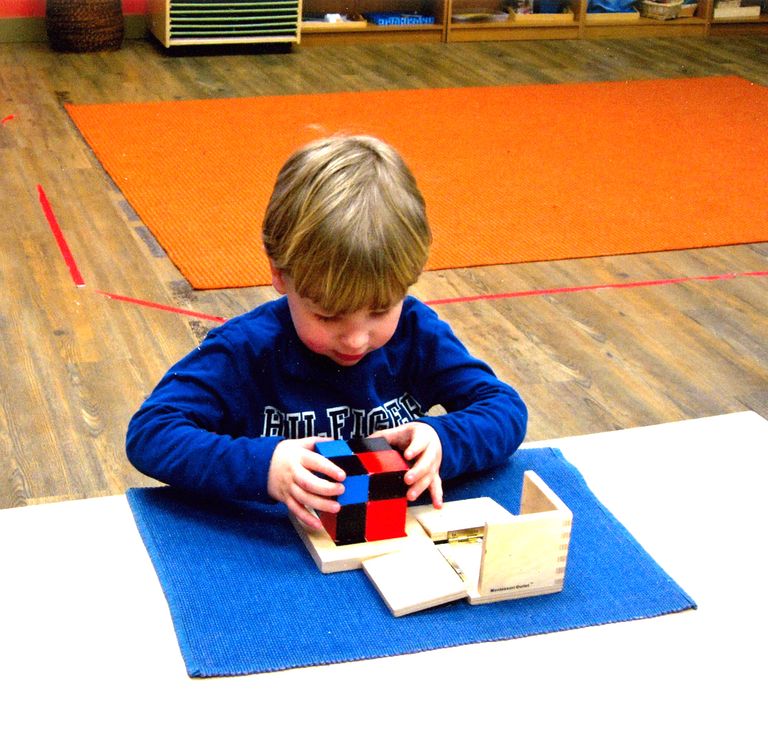
Sensorial
The materials and activities are iconic Montessori.
They allow children to pursue their natural tendency to classify sensorial impressions and sort by size, shape, color, touch, sound, and weight.
The sensorial materials isolate specific qualities, have a built in control of error, allow for repetition, and make abstract qualities concrete.
Sensorial activities lay a foundation for math, geometry, geography, botany, zoology.
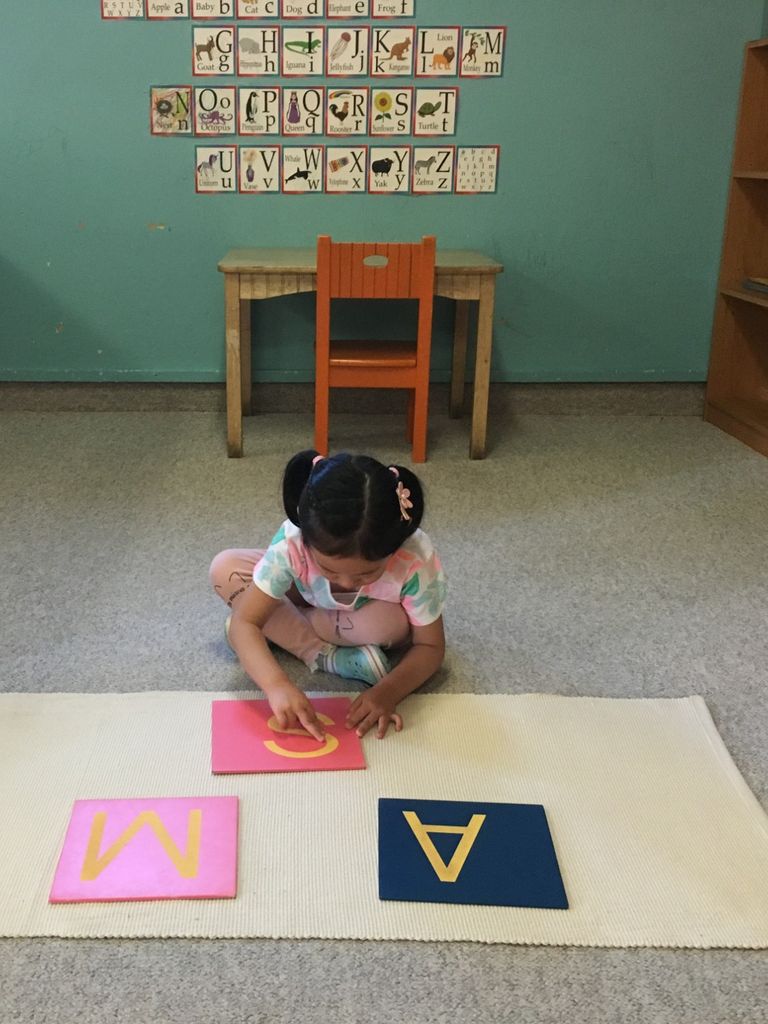
Language
Children are immersed in language the moment they enter the classroom. Spoken language is encouraged as children communicate with each other individually, in small groups, and in large groups. A library of books is available for enjoyment and information. Stories are read and told individually, in small and large groups.
The phonemic awareness is taught through hands on activities and games, the alphabet is learned with fun and interesting sorting and matching works, handwriting is practiced through tracing shapes, sandpaper letters, and using chalkboards, moveable alphabet letters are used for writing words, and labels are used all over for word recognition.
Reading for 4 or 5 year olds in a Montessori program usually follows an immersion in writing activities, mostly done using the moveable alphabets. The children spontaneously synthesize all of the phonemes they have learned and the sight words they have been given and often discover that one day they can now read. In addition to a wide range of suitable fiction and non-fiction books in each classroom, there are vocabulary cards in relation to every subject area (nomenclature of everyday objects, social studies, botany/zoology etc.).
Enrichment of vocabulary across the curriculum is a constant focus in the classroom. Another daily occurrence is reading aloud to the children as a group.
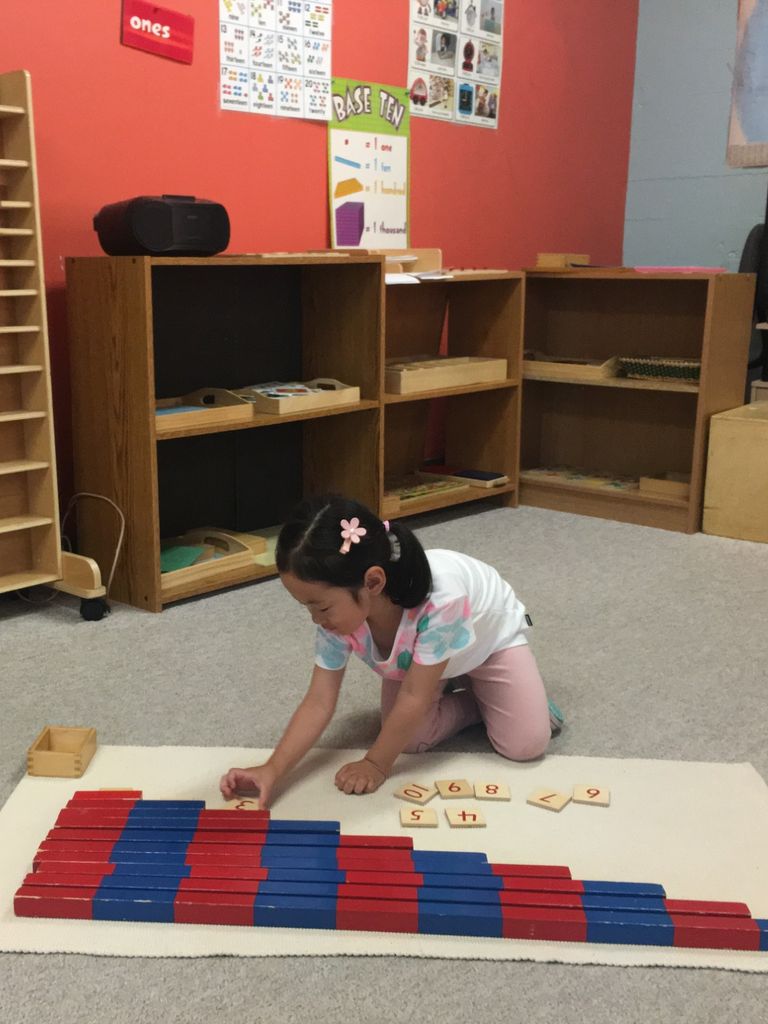
Mathematics
Children’s mathematical sense is built on the strong foundation of the sensorial materials where many fundamental concepts, such as length, volume, gradation, sequencing, grouping and so on, have been already experienced via the senses.
These activities make the abstract concepts of mathematics concrete for hands-on learning. Each activity isolates a particular concept and integrates with other activities to form a strong foundation for further exploration.
Math activities include 1 to 10 (sequences, quantity, numeral names, combinations of ten, basic arithmetic), teens, tens, introduction to the decimal system, and the operations of addition, multiplication, subtraction, and division.
Children explore fractional equivalences and the fractional names with manipulative materials.
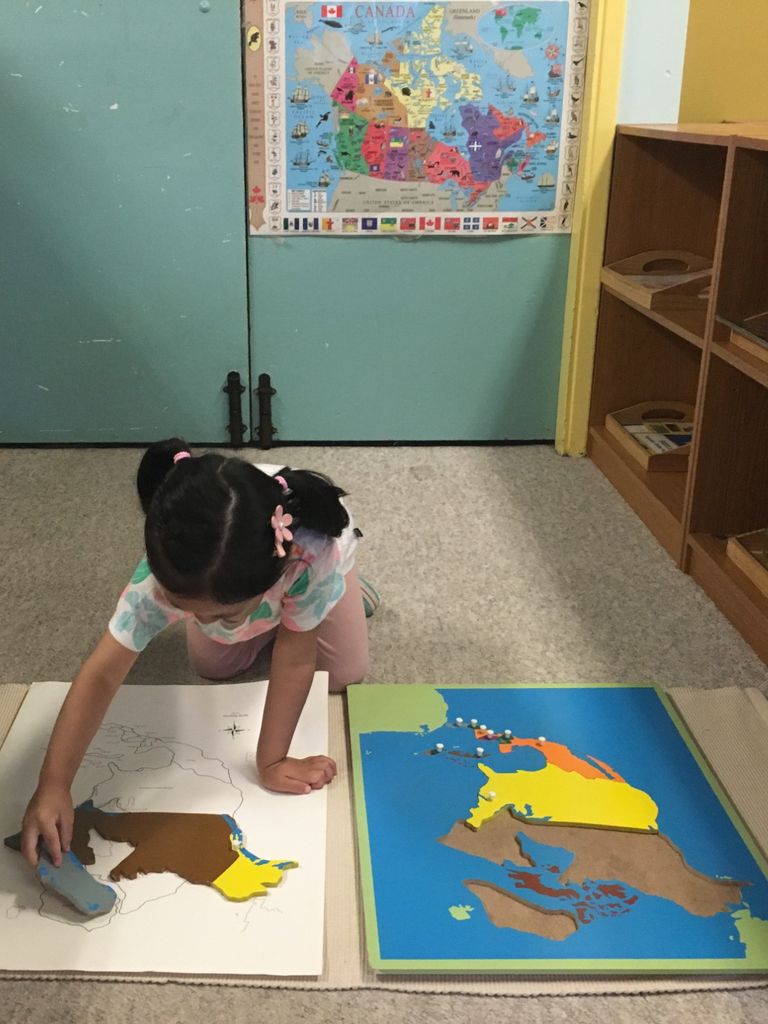
Social Studies
These materials help the child learn about the facts of the material world. Working with the sensorial, language and cultural materials related to geography is an important part of the work of a Montessori classroom.
The children are introduced early to a sandpaper globe where they can have a visual and tactile experience of the Earth. Other sensorial materials and puzzle maps are used by the children to explore the continents of our world, the countries of each continent, and the provinces of our own country.
They also create key land and water forms such as lake, island, and peninsula. Social studies vocabulary is given both orally and with prepared nomenclature cards that are used by the children as an integrated part of their language work.
The children are introduced to the diversity of international cultures by means of stories, songs, celebrations, pictures, and artefacts. The students celebrate diversity of our world through language, music, art, traditions, food, stories, and history.
A variety of cultural themes are integrated into all curriculum areas.
Peace education is an integral part of the Montessori classroom and begins with respect for, understanding, and acceptance of differences as well as the celebration of the unifying aspects that connect us all.
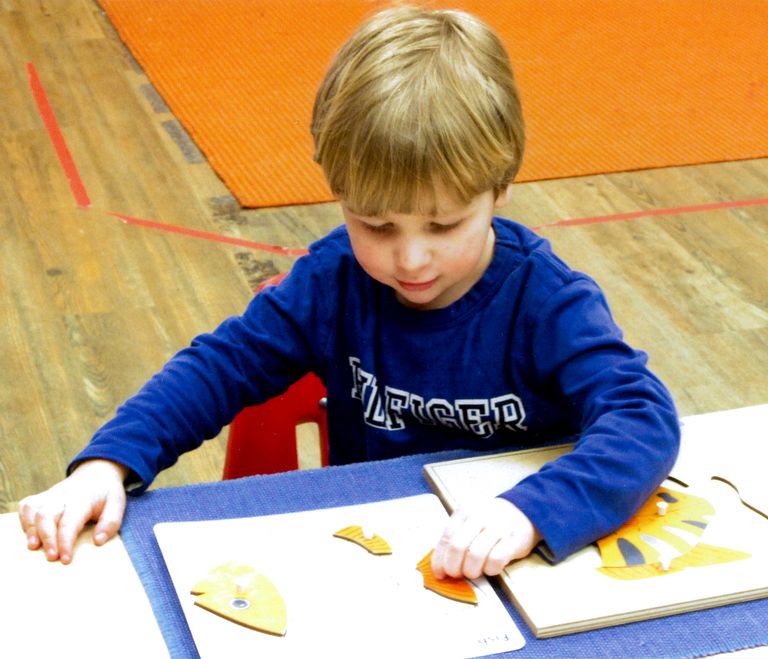
Botany / Zoology
Sensorial exploration and experimentation is key, as children learn about the natural world.
For example, sand and water tables allow for open-ended work while other activities isolate individual concepts such as sink and float, magnets, botany, etc. Care for plants and animals overlap with practical life activities and teach science as well as responsibility.
Basic skills of science, such as measuring, comparing, classifying, and keen observing, are carefully prepared and practiced. This work is accompanied by extensive classified nomenclature. For example, children learn the scientific nomenclature of the parts of a flower, such as the calyx and corolla.
Classification systems such as living/non-living and vertebrate/invertebrate are also taught. Children study the basic characteristics and nomenclature of plants and animals.
They learn to name common domestic and wild plants and animals, and they work with materials to learn fundamental classifications such as mammals, birds, reptiles, amphibians, and fish.
We need your consent to load the translations
We use a third-party service to translate the website content that may collect data about your activity. Please review the details in the privacy policy and accept the service to view the translations.

